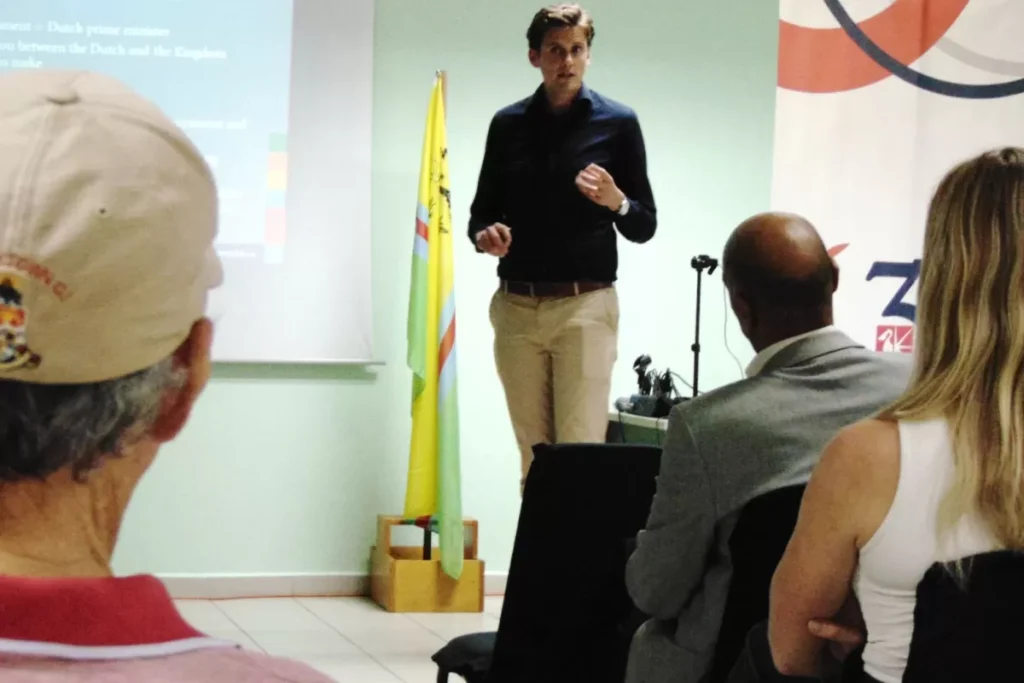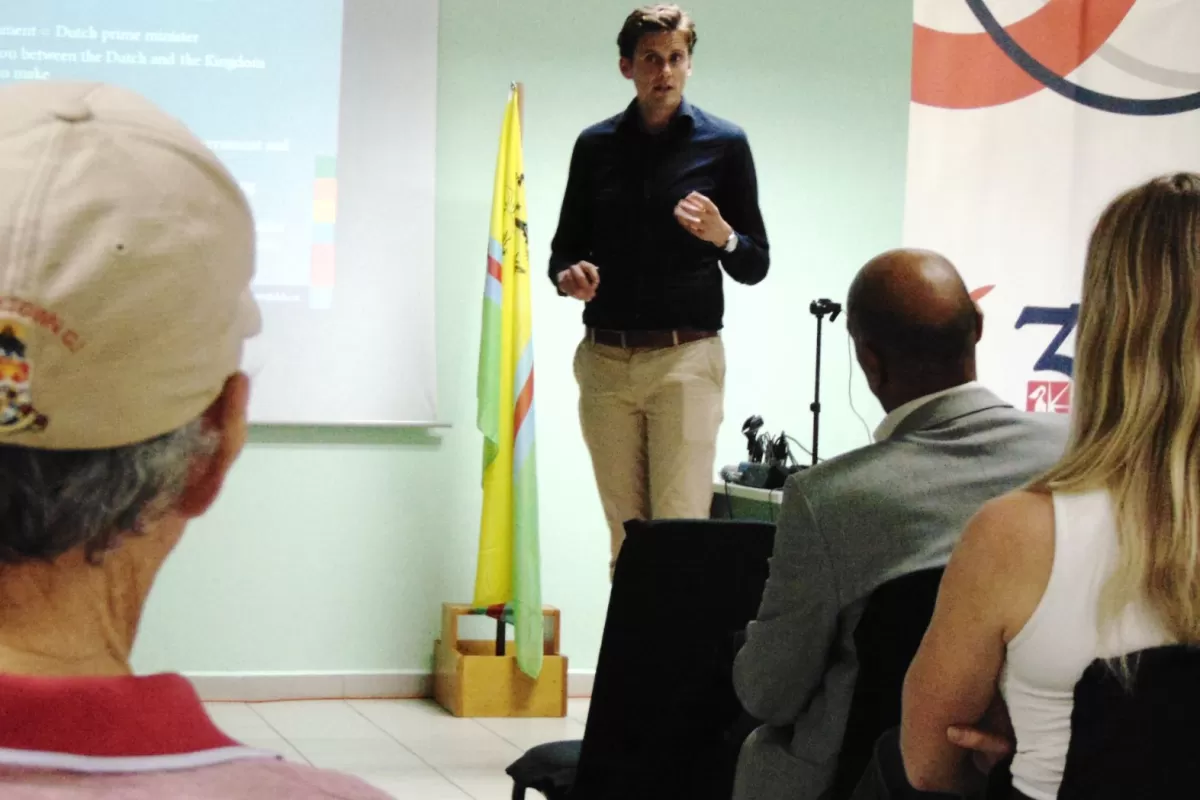Political Science Professor Advocates for Kingdom Parliament St Maarten University

Political Science Professor Advocates for Kingdom Parliament
https://stmaartennews.ai/rip-melinda-hoeve-condolences-to-family/
Political science professor and researcher Wouter Veenendaal advocates for a Kingdom Parliament that includes representation from Curacao, Aruba, and St. Maarten,
aiming to improve democracy within the Dutch Kingdom.
Political Science Professor
During a Tuesday lecture at the University of St. Martin (USM),
Veenendaal asserted that addressing the democratic deficit between the Netherlands
and the Dutch Caribbean requires either expanding the existing parliament or allocating dedicated seats to the three Caribbean islands,
Political Science Professor
which function as autonomous entities within the Kingdom.
He cited Denmark and its outlying islands as a successful model,
noting how the European mainland state governs these distant territories through a shared parliamentary structure with legislative representatives from each territory.
https://sxmnews.ai/french-st-martiner-going-to-dutch-prison-for-stabbing/
As a researcher from Leiden University in the Netherlands, Veenendaal has examined politics, election participation, and democracy globally, including in former Dutch territories.
Attendees from sectors such as law, government, and education joined Veenendaal’s lecture,
where he highlighted the benefits of democratic participation in smaller localities, albeit with certain caveats.
Political Science Professor
He explained that research shows smaller territories often enjoy direct interactions between the electorate and their representatives, leading to more immediate impact.
However, he cautioned that such closeness can also allow undue influence from bad actors within government institutions.
He additionally discussed the role of wealthy power brokers, who can sway elections and diminish democratic impact.

Veenendaal also outlined the Dutch Kingdom’s challenges,
including differing perspectives between residents in the Netherlands and those in the Caribbean on their shared responsibilities to support an equitable and fair governance structure.
He criticized the current arrangement, where the Kingdom operates primarily from The Hague with minimal input from Curacao,
Aruba, and St. Maarten, aside from the work of their ministers plenipotentiary—appointed representatives who advocate for the islands.
To strengthen democracy, Veenendaal proposed allowing direct voting by Dutch Caribbean residents in the Kingdom’s parliamentary elections.
Political Science Professor
However, he acknowledged challenges in this approach, such as the difficulty for island candidates to meet the 70,000-vote threshold
needed to secure parliamentary seats and the need to elect representatives who can effectively serve the islands from The Hague.
Leiden University, one of USM’s institutional partners, continues to support Caribbean research and development efforts,
offering USM students expanded opportunities to study abroad through partnerships.
However USM will participate as a partner institution in the three-year Caribbean Teacher as Researcher in the 21st Century project,
which launched recently in Aruba and has produced research findings on the COVID-19 pandemic’s effects on vulnerable populations in Curacao, Aruba, and St. Maarten.
Political Science Professor
This lecture was part of USM’s 35th-anniversary series, which features renowned speakers on topics such as political equity,
law, human and civil rights, and climate change.
In conclusion USM remains dedicated to hosting public sessions that benefit island residents.
For more information about USM, its research, and its educational programs, please visit www.usm.sx or call 542-5171.


